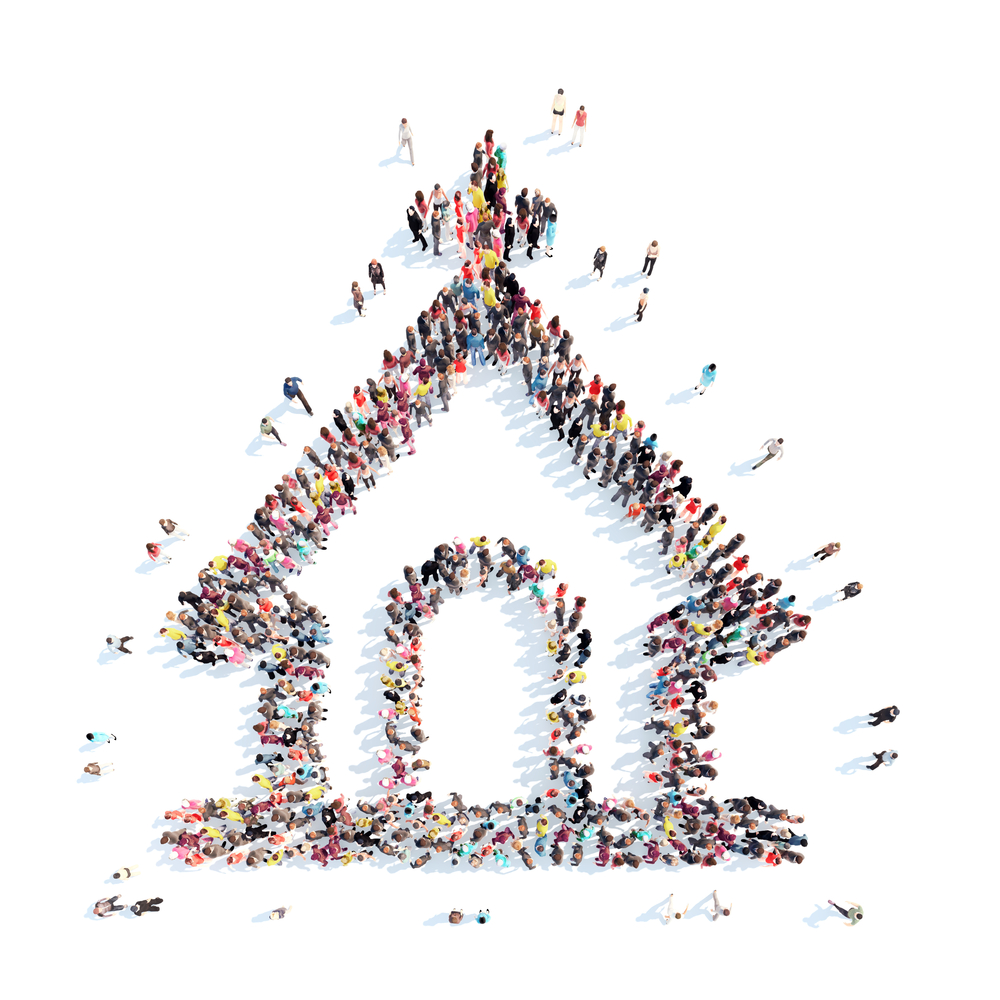The Church as Our Lasting Home
Thirty-second Sunday in Ordinary Time – November 9, 2025
Normally, after we grow up and initially leave home it is comforting, and deeply psychologically and emotionally healthy, for us to come back to the family home. It is usually a stable and safe place to come back. As we grow older, we feel more stable in ourselves, and that emotional attachment naturally reduces, especially as we establish our own families.
Having said that, I also acknowledge the trauma or disappointment some people feel when they return to where they grew up. About six years ago, I felt a sense of loss when my parents had to sell up the family home which had been a stable place for 40 years. This reflection on the family home and sense of belonging that every human person needs for emotional health, is helpful way of thinking as we discuss the relevance and importance of today’s feast.
Saint John (the Baptist) Lateran Basilica, the cathedral of the Bishop of Rome (the Pope), was dedicated in 324 AD by Pope Sylvester I after Emperor Constantine gave the land to the Church. It is the highest-ranking church in the world. Lateran is the family who owned the property and built the first “palaces”, which were later used by the Popes.
Today’s Feast emphasizes/ celebrates the unity of Catholics worldwide. It reminds all of us of the religious freedom we enjoy today (for most people), but didn’t always. Christians first met in homes to hear the Gospel and celebrate the Eucharist, so their sense of unity reduced.
The dedication of Saint John Lateran Basilica is like someone getting married or making perpetual religious profession/ ordination: they each make Vows for life, not just a simple promise. The dedication of the Lateran Basilica declares for all time that the catholic Church is for all people a community they are welcome to be part of: not as some club, but as the Body of Christ, where we sacrifice for others and receive the benefits of others who sacrifice for us.
Whatever happens to us in life, knowing we belong, is of profound importance to our psychological wellbeing: knowing that there is a safe place where I can discern purpose and direction in life. It most countries, churches are a place of sanctuary and safety.
Further, today’s Feast remind all of us Catholics of our historical roots and the importance of the Church in building and safeguarding our community: despite the fact that at times it has failed terribly due to human weakness and selfishness. But, when we look at the big picture, without the Christian church, slavery would still be ‘normal’ & democracy would not exist.
The 1st reading uses the image of a stream coming out from the walls of the temple, and how the waters of that stream sustain much life along its course, wherever it goes. It reminds us of the many blessings the Church has created for the whole world: freedom, justice, democracy.
At times, we might feel disappointed by the Church, but that is usually because of some Church leaders, and that should be challenged early to reduce the risk of abuse. When we feel challenged by Church teachings, we are called to be patient as we wait for the truth and wisdom of such teachings to be revealed (made manifest): it often takes time.
Just as, in family life, we don’t always agree with siblings/ parents/ children, we don’t cut off our connection with them: we stay, but maybe with arms folded ‘I’m here but I’m not happy!’ We only need to think of teenagers who are grounded, or restricted, when their friends are not.
Today we are not just called to thank God for our Church community (whether we participate regularly or not), we are challenged to ask ourselves: am I building the community? What do I contribute to strengthen the Church of God’s people? Do I take more than I receive?
The Church gives me rights, but there are also obligations if we want those rights to be preserved into the future for, both, ourselves and others. Think of the Church as family: if we don’t contribute to our family, the family will grow weaker and eventually it will no longer feel like my family. But where will we go when we lose everything and are rejected by others?
In life there are two types of people: Conduits who pass on power to others; or Cul-de-sacs who are dead ends: no matter how much kindness you pour into them, it ends up in a black hole. http://www.allprodad.com/pod/viewplayoftheday.php?date_pod=2008-11-6
Who are we? When we use the Church, but neglect to help the Church (the people of God), then we all suffer. The only sure things in life are God and family. When we lose our natural family, the Church provides a safety-net of belonging: the most important part of contributing to the Church is our presence. When present, we say loudly that the other people are important.
How many times do parents attend children’s functions when they don’t feel like it? Can we not see that our older brother/sister role is just as important in the Church as it is at home?
Today, we are challenged to reflect on what image of Church I/we present to the world? Are you, am I, ready to keep the Church alive by my active participation and service? If not for others, can we not do it for our children and grandchildren?
By Gerard Conlan, OMI


